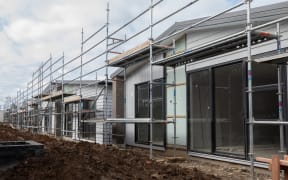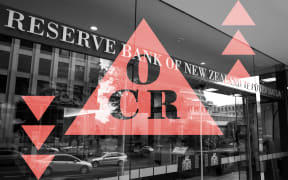
The Reserve Bank is confident inflation will be back in the 1-3 percent target band by the end of the year. Photo: 123RF
Annual inflation has eased to its lowest level in nearly three years.
Stats NZ figures showed consumer prices rose 0.6 percent in the three months ended March, taking the annual rate down to 4.0 percent, the lowest since June 2021.
The numbers were in line with economists' expectations but ahead of the Reserve Bank's [RBNZ] forecast of a 0.4 percent quarterly rise and an annual rate of 3.8 percent.
The RBNZ said in its latest monetary review last week that inflation remained stubborn in some sectors, requiring interest rates to stay high.
However, it was confident it would be back in the 1-3 percent target band by the end of the year.
Rising rents, rates, construction of new houses, household energy and alcohol and tobacco costs were the key drivers, offsetting cheaper transport costs.
Rent prices increased 4.7 percent in the year ended March, while construction of new houses and rates increased 3.3 percent and 9.8 percent, respectively.
"Rent prices are increasing at the highest rate since the series was introduced in September 1999," Stats NZ consumers prices senior manager Nicola Growden said.
Recreation and culture was also a key driver to the annual increase in inflation, due to rising prices for international accommodation and services such as subscription TV and movie tickets.
The fall in transport prices was driven by a 10.3 percent decrease in international airfares and a 2.3 percent fall in petrol prices.
"Just over half a million New Zealand residents returned from their short-term travel in January and February. Some of them may have accessed the cheaper international airfares seen this quarter," Growden said.
Stubborn domestic prices
Kiwibank chief economist Jarrod Kerr said when diving into the details of the inflation data, it was "not as good as the headline suggests".
"But the domestically generated inflation surprised on the upside. Non-tradables fell just 0.1 percent to 5.8 percent. It's not enough," he said.
"The stuff the RBNZ is trying to restrain is proving to be even more frustrating. Services inflation actually lifted to 5.3 percent from 4.7 percent. Whereas construction costs did a little more, falling from 4.8 percent to 4.5 percent."
Kerr said the underlying trend was important for the RBNZ and expected inflation to return to within its 1-3 percent target by the September quarter, opening the door for rate cuts from November.
"Core inflation - removing volatile prices - appears to have peaked in late 2022, and currently sits at 4.1 percent. The core measure was unchanged to 4.1 percent, whereas we had expected a slight fall. We expect the downtrend to recommence next quarter," Kerr said.
ASB senior economist Kim Mundy said the RBNZ would be wary of the risk of inflation being stuck above 3 percent, and expected the central bank to wait until February 2025 to cut the official cash rate (OCR).
"The ongoing strength in domestically-generated inflation was evident and will reinforce the RBNZ's cautious stance," Mundy said.
"We don't think the data suggest the RBNZ needs to do more, so to speak. Activity data are very weak and highlight that monetary policy is working."
Westpac senior economist Satish Ranchhod told Midday Report domestic price pressures, which were unaffected by OCR movements, could be a big concern for RBNZ.
"They don't directly affect things like your council rates or your electricity prices and if those prices are remaining hot, it's going to be make that harder for them to get inflation back to 2 percent.
"Importantly, if we look at the domestic inflation components, the underlying rates there are closer to 6 percent, that's got to be a worrying outlook for the RBNZ."
He predicted inflation to drop to about 3 percent this year, but that would still mean continued pressure on household budgets.
"Getting it back to 2 [percent], where they want it to be, that's going to take some time longer. I don't think we're going to see that until next year at the earliest."
The longer interest rates stayed high - which he believed was likely for the rest of this year - the more the economy would remain sluggish and unemployment would rise.





